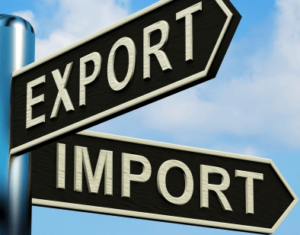Importers and Exporters Association questions benchmark value reversal without consultation
 The Importers and Exporters Association of Ghana (IEAG) has expressed disappointment at the government’s inability to consult the business community and other stakeholders before the implementation of the discount reversal on benchmark values.
The Importers and Exporters Association of Ghana (IEAG) has expressed disappointment at the government’s inability to consult the business community and other stakeholders before the implementation of the discount reversal on benchmark values.
The implementation of the discount reversal on Free On-Board value on general goods, and the Home Delivery Value of vehicles, which were contained in the 2023 Budget and Fiscal Policy, took effect from January 1, 2023.
Mr Samson Awingobit Asaki, the Executive Secretary of the IEAG, told the Ghana News Agency in an interview in Tema that the reversal of the discount was a stab in the back of the business community due to the government’s failure to follow its own promises.
Mr Asaki explained that in March 2022, the finance minister at a meeting on the reduction of the discount on the benchmark value agreed with the business community that such reversals would lead to increase in prices on the market.
He said, “the Finance Minister made it clear that the government was going to set up an Ad-hoc committee comprising the business community and government, I can tell you that since the benchmark value was taken away, up to date the government has not invited us to continue the discussion or constitute the ad-hoc committee.”
The IEAG Executive Secretary added that “so we as a business community believed that the government has stabbed us in the back, it is not living up to his own words when the Finance Minister said they were going to take steps to take it off, there was no stakeholder engagement.”
Touching on the implementation of the reversal on the first working day of 2023, he noted that information received from the port from IEAG members indicated that importers who had their tax bill last week ahead of the reversal were having challenges paying their duties.
According to him, those importers were being asked by the system to get a new tax bill due to the benchmark value discount reversal.
He questioned if the reversal was being done retrospectively, saying, “The issue is that if I have received my tax bill as at last week at a time that the reversal had not taken place, why can’t I pay my duties since today is the first working day, does the law take retrospective effect or what?
Meanwhile, Mr Iddrisu Iddisah Seidu, Acting Commissioner, Customs Division of the GRA, in a memo announcing the implementation of the reversal, stated that a transitional arrangement provides a storage-free period for consignments discharged on December 31, 2022, from arriving means of conveyance to go through clearance without being affected by the reversal policy.
The order indicated that all pre-arrival declarations processed and tax paid even when the goods have not arrived before 1st January 2023 shall not be affected by the reversal policy.
It stated that per Section 48 of the Customs ACT 2015, (Act 891); the criteria for the implementation of the discount reversal in the Integrated Customs Management System is based on the validation of the bill of entry (BOE) and tax bill payment date.
“Any BOE that has been processed and tax bill duly paid before the effective date of the policy, will, not be affected, any BOE with tax bill duly paid before the effective date, but undergoing a post entry without any change affecting tax amount paid, will not be affected.”
It further stated that any BOE that has been assessed and/or accepted but tax bill not paid before the effective date would undergo reprocessing for the complete reversal of discount earlier applied to the value(s).
“For the avoidance of any doubt, the values to be used or applied in the assessment of duties shall be the full (hundred percent) and devoid of any reduction in values (10 percent for vehicles and 30 percent for all other goods).
“Thus, the status quo ante April 4, 2019 shall be restored in respect of all items with effect from January 1, 2023.”
Source: GNA
